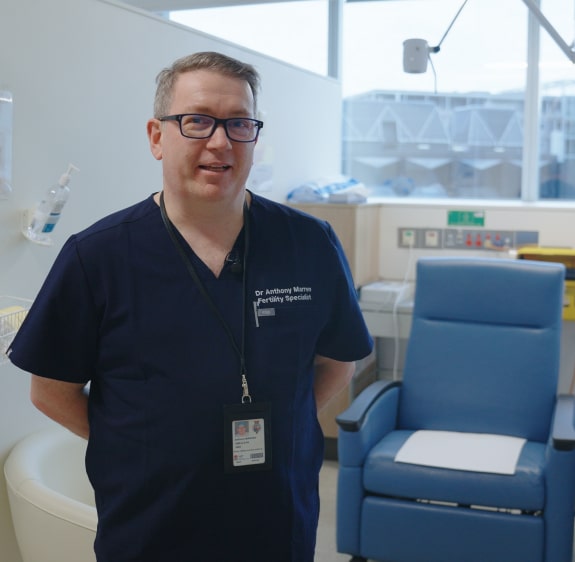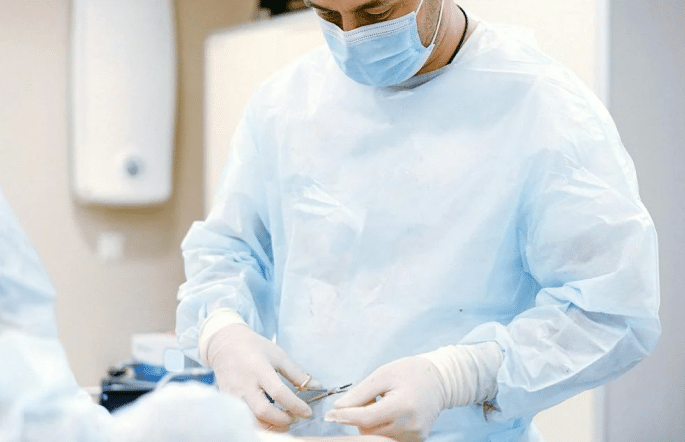
Male infertility refers to a man’s inability to contribute to conception, often due to issues with sperm production, quality, or its ability to meet the egg. Common causes include low sperm count, poor motility (movement), or abnormal morphology (shape).
Male infertility is a common factor in conception challenges, accounting for 30-50% of cases in couples struggling to conceive. Identifying the underlying cause of male infertility is crucial for determining the best course of action.

While Infertility is defined as not being successful achieving an ongoing pregnancy after 6 (female age ≥ 35-years) or 12-months (female age < 35-years) of unprotected intercourse, the causes are divided into:
When it comes to Male specific causes, these are further broken down into:

The testes do two main things: produce sperm and produce testosterone. In order for the testes to produce sperm and testosterone, hormonal signals from the brain need to correctly interact with the testes. In the case of testicular related infertility there could be a number of reasons why.
The testes themselves may be the cause of an abnormal sperm count. A testicular biopsy may show low sperm production, sperm maturation arrest, or no sperm production at all. Typically, FSH and LH levels are high and Inhibin +/- Testosterone levels are low.
Non-testicular, non-obstructive causes of male infertility is caused by the inadequate hormone signalling from the pituitary gland. Typically, FSH and LH levels are low and Inhibin +/- Testosterone levels are also low.
Further investigation of the pituitary is warranted. This will include additional hormone tests and an MRI of the pituitary.
The treatment is aimed at correcting the underlying issue e.g. treating a high prolactin or, replacing the FSH and LH hormones.
Obstructive infertility occurs when a physical blockage in the male reproductive tract is caused by a blockage in the passage of sperm from the testes to the outside.
This may be congenital (born with) or acquired.
Typically, the hormones and ultrasound are normal. It is essential to exclude Cystic Fibrosis as a cause - this can lead to the congenital absence of the tube that runs from the testes to the outside.
Most commonly, retrieving the sperm via a needle from the testes is used in conjunction with IVF/ICSI.
Age is important for male fertility. Whilst the impact is not as obvious compared to females, the following is seen in the older male:
Reduction in sperm parameters - concentration and motility;
Slight increase in chromosome error rates;
Increase in the rate of Autosomal Dominant conditions e.g. Achondroplasia;
From the time sperm start to be produced to the time sperm is released is a little under 3-months. In that time, sperm is exposed to heat and a variety of other toxins.
Heat and toxins can and will result in damage to the genetic material within the head of the sperm - DNA fragmentation.
I usually request a sperm DNA fragmentation test on my patients. In the event DNA fragmentation is high, the following is performed:

In the event the semen analysis is abnormal, a second one may be requested along with the following investigations (this is in addition to a careful history and examination):
Male infertility treatments in Sydney encompass a range of options tailored to address the specific underlying causes. From surgical interventions and hormonal therapies to advanced assisted reproductive technologies, these treatments aim to improve fertility and enhance the chances of conception.

Varicocelectomy is a surgical procedure designed to correct varicose veins in the scrotum (varicocele), which can disrupt blood flow and elevate testicular temperature, negatively affecting sperm production and quality. By restoring proper blood circulation, this surgery can improve sperm health and overall fertility outcomes.
For men with blockages preventing sperm from entering the ejaculate or those with non-obstructive azoospermia (no sperm in semen), surgical retrieval methods are available:
Testicular Sperm Extraction (TESE): Sperm is extracted directly from the testicular tissue.
Microdissection Testicular Sperm Extraction (microTESE): Using high-powered microscopes, doctors identify and extract sperm from specific areas of the testes, offering a refined approach for men with very low sperm production. Retrieved sperm can be used for IVF (ICSI) treatment.

Hormonal imbalances, such as low testosterone or issues with FSH and LH levels, can impair sperm production. Hormonal therapies aim to restore natural hormone levels and support the testes in producing healthy sperm.
Medications may be prescribed to target specific fertility challenges, such as treating infections, enhancing sperm quality, or stimulating sperm production. Additionally, antioxidants and supplements like Vitamin C, Vitamin E, Zinc, and CoQ10 are often recommended to reduce oxidative stress and support overall sperm health.

ICSI is a precise technique where a single sperm is injected directly into an egg, ensuring fertilisation in cases of male infertility, such as low sperm count or motility.
Advanced methods like ZyMot, PICSI, and IMSI are used to select the healthiest, most mature, or best-shaped sperm for fertilisation. These techniques enhance embryo quality by reducing oxidative stress, using hyaluronic acid binding to identify mature sperm, or employing high-magnification imaging to evaluate sperm morphology.

Sperm production takes around three months, including time for maturation and transport. This process can be influenced by lifestyle factors like diet, exercise, stress, smoking, and alcohol consumption, all of which can impact sperm quality. Addressing these factors through healthy lifestyle changes is a critical component of improving male fertility.
For men who have no sperm in their semen, microdissection testicular sperm extraction (microTESE) can help. This method uses a powerful microscope to look closely at the testes and find tiny tubes that contain sperm. Doctors can then carefully remove these tubes to collect viable sperm for use in treatments like IVF.
For further information Click here

Male infertility is often overlooked, despite being a significant factor in many infertility cases. Whether the issue lies solely with male fertility or involves both partners, it’s essential to address it with care and precision. I prioritise understanding your family’s fertility goals and take a holistic approach, addressing all possible factors. Together, we’ll tackle fertility challenges from every angle, ensuring the best chance of achieving success.
Depends on a number of factors such as:
For further information on IVF success rates Click here
Dr Anthony Marren partners with Genea Fertility. Patient Relationship Coordinators (PRCs) will provide a quote based on the treatment plan plus Medicare/ insurance status.
For further information on costs of fertility treatment in Sydney Click here